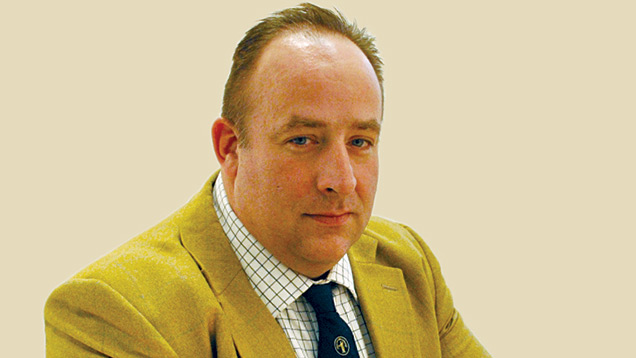“You can’t build a peaceful world on empty stomachs and human misery”
 david alvis
david alvis So 2014 draws to an end and with it the centenary of two historic events.
The first is a reminder to us all of the horrors of armed conflict and the courage of those who made the ultimate sacrifice.
The second is an altogether more positive story, the consequences of which have probably shaped the modern world to as great an extent as the First World War.
I refer, of course, to the birth of Norman Borlaug, the father of the ‘Green Revolution’ that ushered in the era of modern agriculture. A Nobel prize-winning plant geneticist, he is widely credited with saving more than a billion people from starvation. His legacy continues to confound the Malthusian prophecy of mass starvation to this day.
Borlaug’s work introducing dwarf genes into wheat, paved the way for the intensification of cereal production and arable farming as we know it today.
As a result, the world produces at least 30% more food per capita than it did in 1960; an achievement that is all the more remarkable given that global population has risen from 3 billion to nearly 7.5 billion in the same period.
That achievement has only been possible with the innovation, commitment and dedication of farmers around the world; something everyone involved in agriculture should be proud of.
Yet while we all might be feeling the short-term pain of low commodity prices, the challenge to produce more from a diminishing resource base over the coming decades still remains. Borlaug himself admitted, that far from solving mankind’s greatest problem, he had merely bought us some time.
Agriculture has a huge responsibility to continue to innovate and improve its efficiency, if the next half-century is to be as relatively peaceful and prosperous as the last. The judicious application of new technology and an innovative approach to each new challenge will continue to be fundamental to our ability to deliver this.
I have been privileged to work with some of the most innovative businesses and research establishments in UK agriculture in recent years, in my former role with the Technology Strategy Board’s (now InnovateUK’s) sustainable agrifood innovation platform.
It was set up in 2009 in response to growing concerns about the sustainability of future food production, articulated by among others, Prof Sir John Beddington, the government’s then chief scientific advisor.
The platform was built around a commitment of £90m of public money over five years, to be invested in industry-led, collaborative R&D projects to accelerate the commercialisation of some of the world-class scientific research coming out of UK universities and research institutes.
As the first of those projects reach fruition, it would appear that the money was well spent. There have been some truly innovative and inspiring collaborations that I am certain will have a profound impact on future agricultural productivity and resilience, both in the UK and further afield.
Last year the government committed a further £160m via the agritech strategy, which looks to be equally productive, judging by the number and quality of applications submitted thus far.
These projects will provide us with some of the tools to meet our future production challenges. It is down to us to ensure we make the best use of them for the benefit, not just of our own businesses, but of society in general.
As the memories of the First World War begin to fade into history, I feel it is only fitting that my final word of 2014 should go to the great Norman Borlaug himself: “You can’t build a peaceful world on empty stomachs and human misery”
David Alvis is Managing Director of Yorkshire Dairy Goats, based in the East Riding. He is a Nuffield Scholar and formerly co-managed the Technology Strategy Board’s Sustainable Agriculture & Food Innovation Platform
